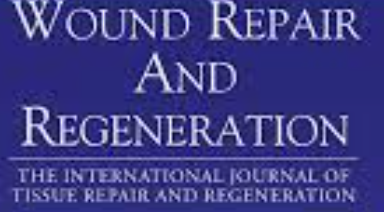The "POWER™ Paper" on Evidence Based Research
The Alliance recognized the need to craft a white paper on criteria for conducting methodologically sound randomized controlled clinical trials (RCTs) as well as address the importance and relative strength of non-RCT research in the wound care field. In 2010, the assembled a team of prominent, respected wound care researchers to address this task. The team was called the Panel On Wound Care Evidence Based Research (POWER™) and its ensuing paper, “Consensus Principles for Wound Care Research Obtained Using a Delphi Process” was published in the 2012 May/June edition of Wound Repair and Regeneration. The paper established a series of principles for all stakeholders involved in clinical or comparative effectiveness research in wound healing.
The Alliance organized and sponsored the Power™ meeting with costs being defrayed by manufacturers and associations with an interest in wound care research. Power™ team participants and study authors included:
This meeting was originally conceived in response to the Center for Medical Technology Policy's (CMTP) effectiveness guidance document "Devices for Local Treatment of Chronic Wounds." The Alliance had concerns that if this document went unanswered by the wound care community, payers could adopt this document as a threshold standard that both wound care researchers and manufacturers would need to follow in order to gain coverage for future wound care technologies. Moreover, on closer examination, many wound care researchers realized that there is a true need for guidance from the wound healing community on the conduct of clinical research, particularly to non-RCT studies.
The Alliance organized and sponsored the Power™ meeting with costs being defrayed by manufacturers and associations with an interest in wound care research. Power™ team participants and study authors included:
- Thomas Serena, MD, FACS, Chair
- Marcia Nusgart, R Ph, Executive Director
- Barbara Bates-Jensen, RN, PhD
- Marissa Carter, PhD
- Renee Cordrey, PT, PhD(C), MSPT, MPH, CWS
- Vickie Driver, DPM, MS
- Caroline Fife, MD
- Paul Haser, MD
- Diane Krasner, PhD, RN, CWCN, CWS, BCLNC, FAAN
- Adrianne P. S. Smith, MD, ACEP, MAPWCA
- Robert Snyder, DPM, CWS
This meeting was originally conceived in response to the Center for Medical Technology Policy's (CMTP) effectiveness guidance document "Devices for Local Treatment of Chronic Wounds." The Alliance had concerns that if this document went unanswered by the wound care community, payers could adopt this document as a threshold standard that both wound care researchers and manufacturers would need to follow in order to gain coverage for future wound care technologies. Moreover, on closer examination, many wound care researchers realized that there is a true need for guidance from the wound healing community on the conduct of clinical research, particularly to non-RCT studies.



